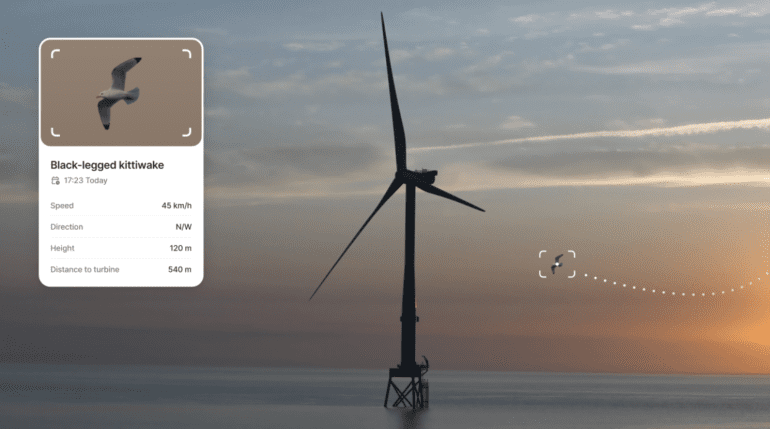- Spoor, a startup, employs AI to protect birds from wind turbines’ impact.
- Its software detects and tracks birds, aiding wind farms in compliance with regulations.
- Spoor’s technology offers continuous monitoring, enhancing reaction to bird migration.
- The startup secures a $4 million seed round, backed by prominent investors.
- Despite its Norwegian roots, Spoor eyes expansion into the lucrative U.S. wind energy market.
Main AI News:
The burgeoning wind energy sector, a pivotal player in the realm of renewable energy, faces a critical challenge: the toll wind turbines take on bird populations. Enter Spoor, a pioneering startup leveraging artificial intelligence (AI) to address this pressing environmental concern.
Wind power stands as the foremost renewable energy source in the U.S., as per the U.S. Energy Information Administration. However, the proliferation of wind farms poses significant threats to avian life. Spoor emerges as a beacon of hope, utilizing AI technology to aid wind farms in mitigating these risks.
Developed as a sophisticated software solution, Spoor harnesses the power of machine learning to identify birds through video analysis. Not only does it detect avian presence, but it also tracks their movements and forecasts flight trajectories. Ask Helseth, the CEO and co-founder of Spoor, emphasized the regulatory demands placed on wind farms worldwide to monitor and mitigate their impact on bird populations. He noted the absence of effective tools prior to the advent of AI-powered computer vision.
“Regulators are increasingly demanding accountability, yet the industry lacked a robust solution,” Helseth explained. Traditionally, field personnel relied on manual observation methods involving binoculars and trained animals. Spoor revolutionizes this process by offering continuous monitoring capabilities, enabling wind farms to proactively respond to bird migration patterns. By leveraging Spoor’s insights, companies can adjust turbine operations to minimize avian collisions during peak activity periods.
Moreover, Spoor’s innovative platform facilitates site evaluations for potential wind farm locations, aiding in the assessment of environmental risks to local bird populations. Helseth emphasized the scalability of their technology, essential for monitoring vast expanses typical of wind farm sites. The company’s proprietary data pipeline and cutting-edge computer vision algorithms enable real-time bird detection—a feat previously deemed challenging.
Fresh off securing a $4 million seed funding round, Spoor has garnered support from prominent investors, including Futurum Ventures and Ørsted Ventures. Kevin Webb, co-founder and managing director of Superorganism, underscored Spoor’s alignment with their investment philosophy centered on sustainability and biodiversity preservation.
“Ask and his team have made remarkable strides, aligning with our vision of fostering emissions-free solutions without compromising nature,” Webb remarked.
Despite its Norwegian origins, Spoor sets its sights on the lucrative U.S. market, buoyed by the nation’s ambitious offshore wind energy targets. With the U.S. government aiming for 30 gigawatts of offshore wind capacity by 2030, Spoor anticipates ample opportunities for growth. However, stringent regulatory frameworks, particularly concerning wildlife conservation laws, present formidable challenges. Helseth highlighted instances where wind farm projects faced delays or cancellations due to concerns over their impact on native bird species, including the iconic American Bald Eagle.
While Spoor faces competition from other AI-driven solutions like IdentiFlight, Helseth remains optimistic about the company’s role in driving industry progress. “We may be small in size, but our global traction speaks volumes. The industry eagerly awaits our solutions,” he affirmed.
Spoor exemplifies the transformative potential of AI in fostering sustainable practices within the renewable energy sector, serving as a harbinger of hope for avian conservation amidst the winds of change.
Conclusion:
Spoor’s innovative use of AI technology to mitigate avian risks in wind energy underscores a pivotal shift towards sustainable practices in the sector. As regulatory scrutiny intensifies and environmental concerns mount, solutions like Spoor’s not only ensure compliance but also drive market innovation. The company’s success highlights the growing demand for tech-driven solutions that reconcile economic growth with environmental stewardship, signaling significant opportunities for market expansion and industry transformation.

